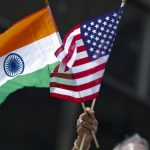The Lower Criminal Court in Manama recently ordered the temporary release of a Hajj campaign operator, his son, and a staff member who were accused of defrauding pilgrims by issuing 12 forged Hajj permits. The court scheduled a hearing for October 7 to present arguments from one of the defense attorneys. During the session, the three defendants appeared in court alongside their legal representatives, including Shaikh Rashid bin Ahmed Al Khalifa, attorney Intisar Al Asfoor, and attorney Noor Mohammed, who was representing attorney Mansour Adraboh.
After the defense statements were given, the court decided to release the three defendants on the condition that they provide guarantees of their residence, but they have been prohibited from traveling. Shaikh Rashid bin Ahmed argued that the court lacked jurisdiction as the alleged incident occurred in the Kingdom of Saudi Arabia, outside of Bahrain’s jurisdiction. He also pointed out that Saudi authorities had already investigated the matter and convicted another individual for the crime, thus severing any connection to the defendants in the current case.
Shaikh Rashid bin Ahmed further argued that the case should not be heard again as it had already been adjudicated, with a prior ruling resulting in a one-year prison sentence and a fine of 3,000 Saudi Riyals against the campaign manager. He emphasized that the defendants had been cleared by public prosecution, which had issued a dismissal order against them. Attorney Intisar Al Asfoor clarified that her client had no official connection to the campaign beyond volunteering as a staff member for the pilgrims in exchange for a salary as a reception worker.
She explained that he was only a receptionist and a helper for the pilgrims, working alongside other staff members such as media personnel and religious advisors. He did not have the authority to issue permits or handle any financial transactions related to the Hajj. The release of the defendants comes with certain conditions including providing guarantees of their residence and being barred from traveling, as the court continues to investigate the case further. The defense attorney’s arguments suggest that the jurisdiction of the court is being questioned, as the alleged incident took place in a different country with its own legal proceedings.
It is clear that the legal representatives are working diligently to defend their clients and prove their innocence in this case. The involvement of Saudi authorities and their investigation into the matter adds another layer of complexity to the situation. The court’s decision to release the defendants temporarily indicates that there may be more to the story than meets the eye. As the case unfolds, it will be interesting to see how the defense attorneys continue to argue their case and the ultimate outcome of the trial.











